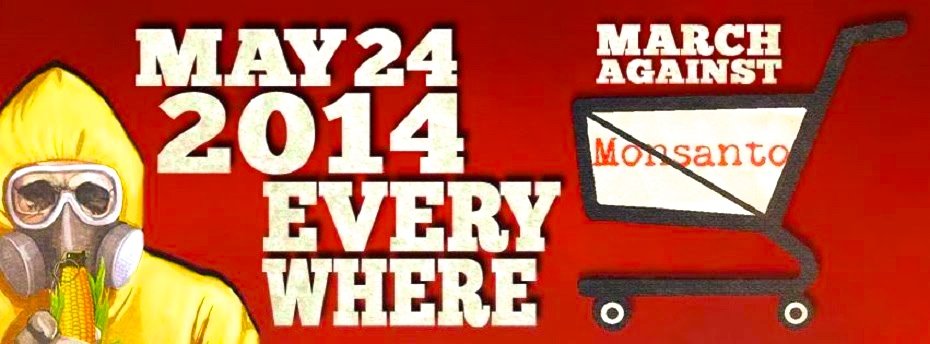On May 24, millions of activists from around the world will once again March Against Monsanto, calling for the permanent boycott of Genetically Modified Organisms and other harmful agro-chemicals. Currently, marches will occur on six continents, in 52 countries, with events in over 400 cities.
In the U.S., solidarity marches are slated to occur in 47 states. A comprehensive list of marches can be accessed here.
Tami Monroe Canal, founder of March Against Monsanto, was inspired to start the movement to protect her two daughters. “Monsanto’s predatory business and corporate agricultural practices threatens their generation’s health, fertility and longevity," she said.
"MAM supports a sustainable food production system. We must act now to stop GMOs and harmful pesticides.”
GMOs are not adequately monitored to ensure public safety. Long term, independent, peer reviewed studies were not conducted before GMOs were introduced for human or animal consumption.
In the USA, the revolving door between Monsanto employees, government positions, and regulatory authorities has led to key Monsanto figures occupying positions of power at the FDA and EPA. Monsanto has spent hundreds of millions of dollars to obstruct all labeling attempts; they also suppress any research containing results not in their favor.
The scientifically established health risks include, but are not limited to: organ damage, sterility, infant mortality, birth defects, auto-immune conditions, allergies and increased cancer risks. GMOs have been partially banned by Austria, Bulgaria, Germany, Greece, Hungary, Ireland, Japan, Luxembourg, Madeira, New Zealand, Peru, South America, Russia, France, Switzerland and Costa Rico, and are currently labelled in 62 countries. Despite this, factory farm animals throughout the world are still fed GMOs.
Kelly L. Derricks started March Against Monsanto's Agent Orange awareness program, educating supporters on the deadly chemical weapon that Monsanto was the largest manufacturer of during the Vietnam War era. Kelly is the president and co-founder of the non-profit, Children of Vietnam Veterans Health Alliance (COVVHA). The organization fights internationally for the children exposed to Agent Orange through generational exposure that is killing tens of thousands with no recognition from the United States Government. "If we fail to realize that March Against Monsanto is not about GMOs alone," Derricks said, "then we have already lost the battle."
Josh Castro, organizer for March Against Monsanto in Quito, Ecuador, observes, “Ecuador is such a beautiful place, with the richest biodiversity in the world. We will not allow this Garden of Eden to be compromised by the destructive practices of multinational corporations like Monsanto. Biotechnology is not the solution to world hunger. Agroecology is.
"Monsanto's harmful practices are causing soil infertility, mono-cropping, loss of biodiversity, habitat destruction, and contributing to beehive collapse. GMO crops cross pollinate with traditional crops, risking peasant farmers' livelihood."
In India, more than 250,000 farmers have committed suicide after Monsanto's Bt cotton seeds did not perform as promised. Farmers, left in desperate poverty, are opting to free their families of debt by drinking Monsanto pesticide, thereby ending their lives. Many farmers in other countries are also stripped of their livelihood as a result of false promises, seed patenting and meticulous legal action on the part of Monsanto and other big-ag interests. In many parts of Africa, farmers and their communities are left to choose between starving or eating GMOs.
An “Open Letter from World Scientists to All Governments Concerning Genetically Modified Organisms (GMOs)”, signed by 828 scientists from 84 countries, detailed concern regarding GMOs coupled with a call for immediate five-year suspension of GMO crops in order to conduct “a comprehensive public enquiry of agriculture and food security for all.”
Visit March Against Monsanto to learn how and where you can get involved in the global day of action on Saturday, May 24.
[via March Against Monsanto]
3 WAYS TO SHOW YOUR SUPPORT
- Log in to post comments












